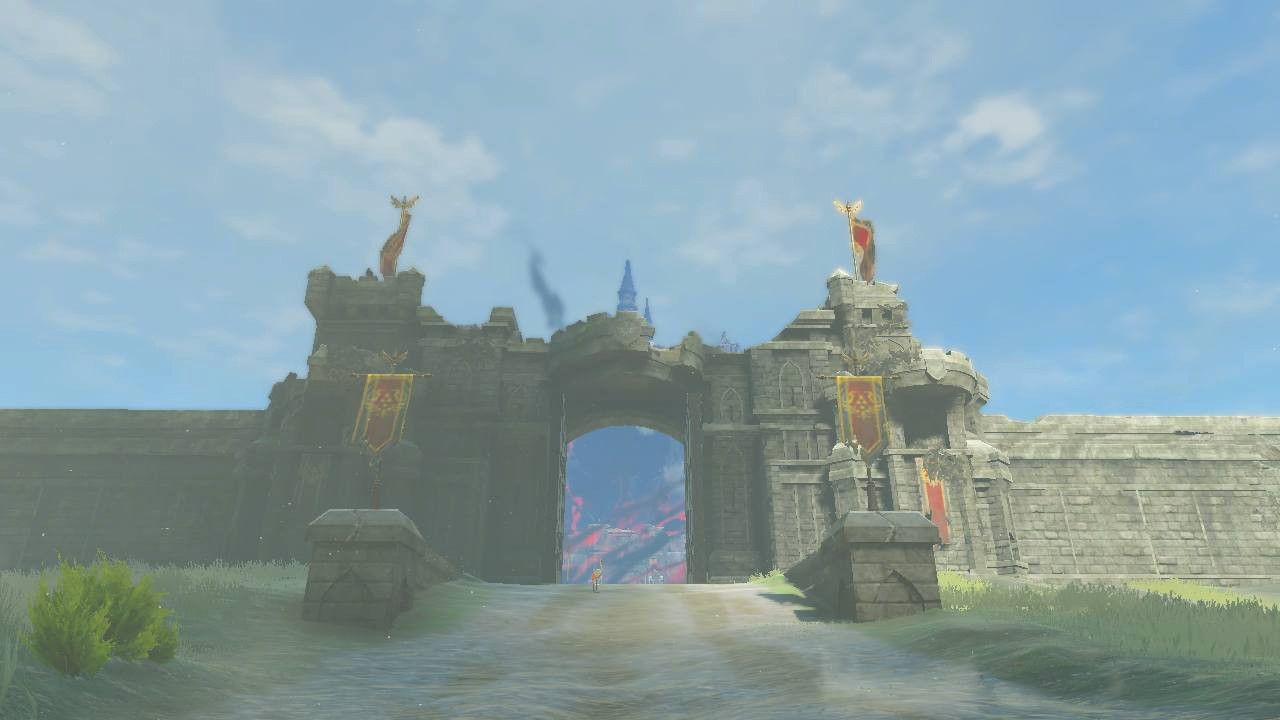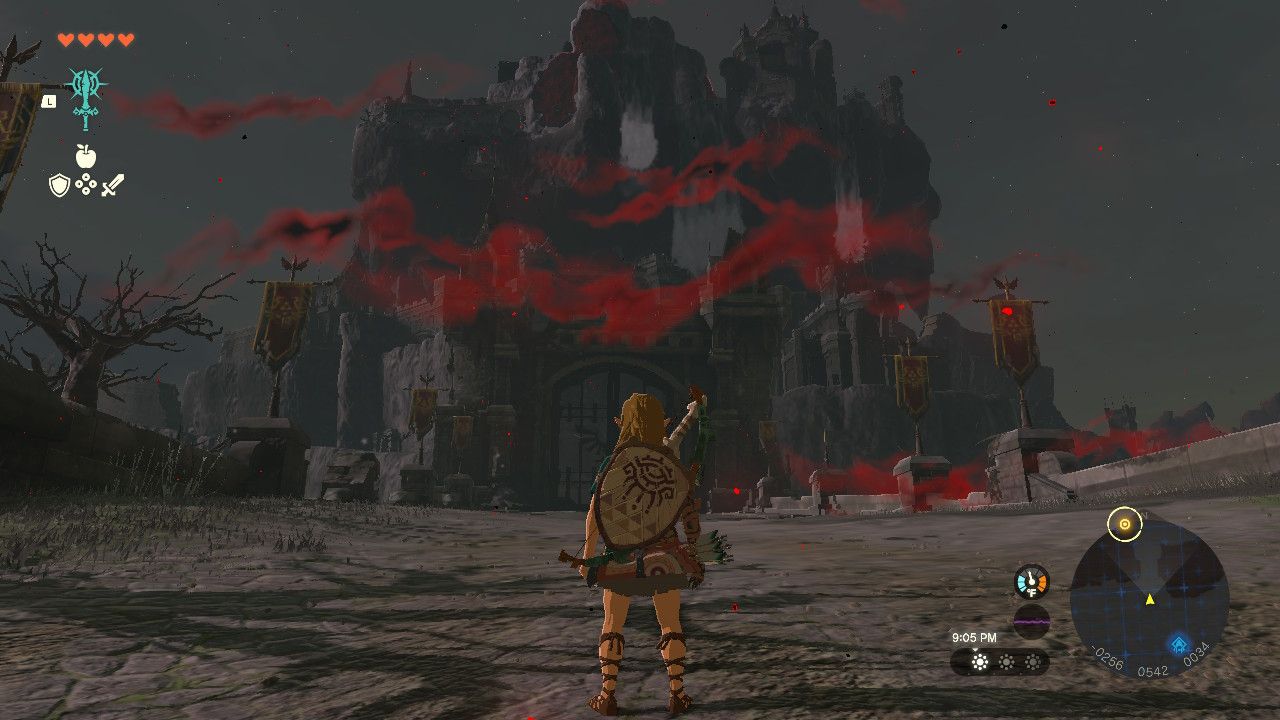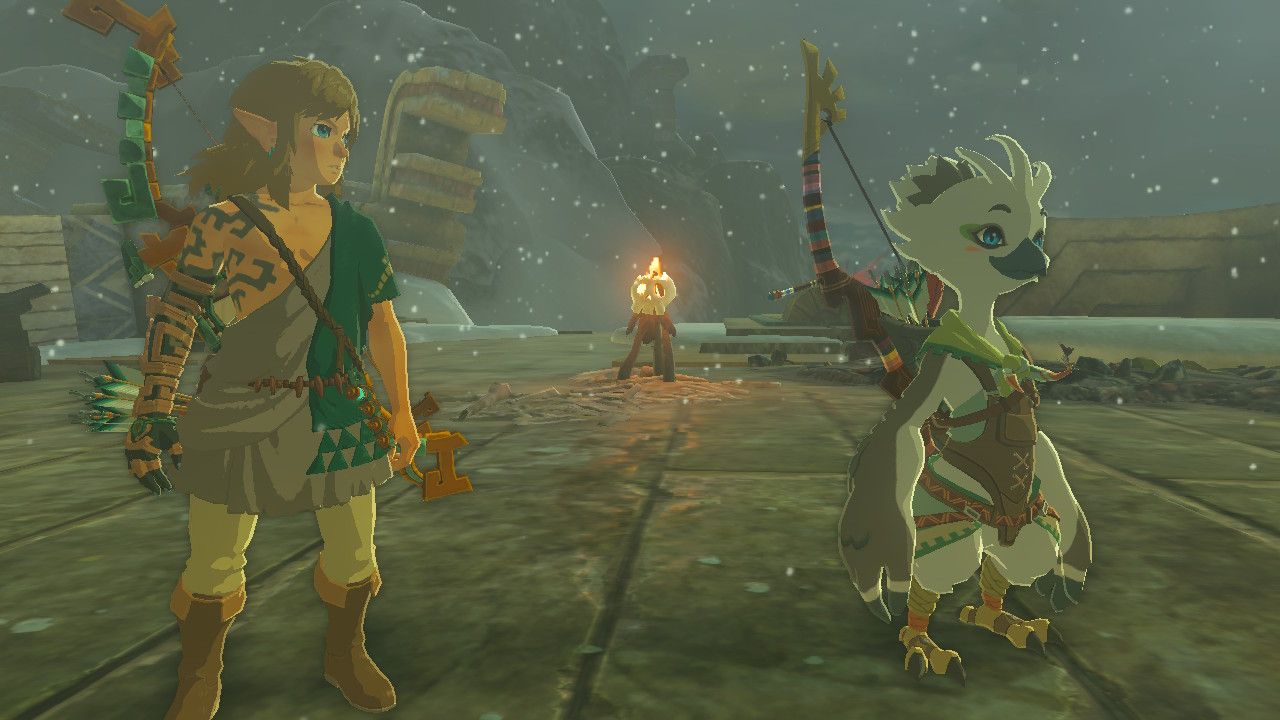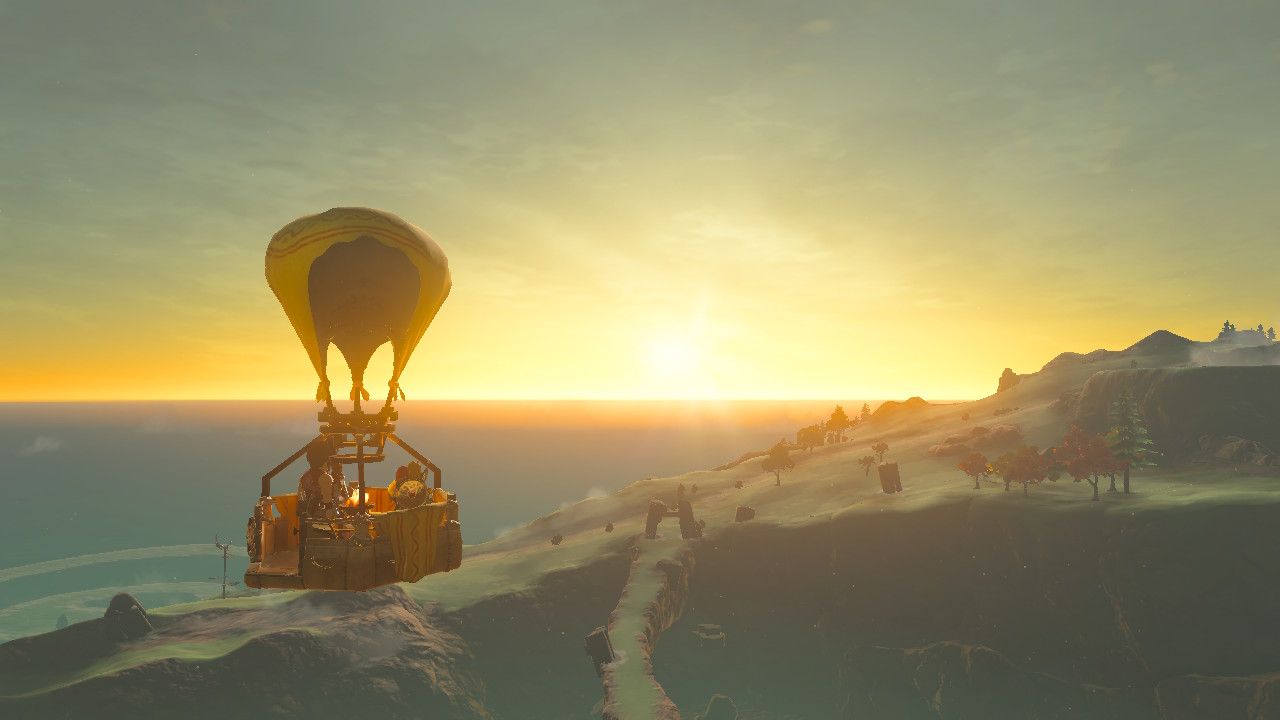The Hands That Guide: A Tears of the Kingdom Review
The evolution from solitude to trust in the newest iteration of The Legend of Zelda

I had my first proper Zelda franchise experience a few years ago with Breath of the Wild; it's the first game in the series that I finished and it had a profound impact on my views on environmental storytelling. So of course, I was both thrilled and anxious going into its sequel, Tears of the Kingdom. I watched every trailer as they were released, excitedly theorizing with my friends about what would be in the game and how we would get to play. The game was beautiful, and I could only hope the story would live up to the melancholy wonder of its predecessor.
My partner and I got our games on launch day, through a midnight release, and we started playing immediately. I don't think either of us slept that night; we were too excited to keep playing. Because, oh my friends, it was so worth the wait.
The New Calamity
Tears of the Kingdom picks up around five years after Breath of the Wild ends. Calamity Ganon is defeated and Hyrule is rebuilding - new construction has popped up all over the country and the people are working together to overcome the ruin of the last century to craft a new and better world for themselves. No one is more central to this than Zelda, who has taken to these efforts with gusto; she consults on new technologies, built a school for the children of Hateno, and is overseeing the reconstruction of Castle Town and many other settlements.
Unfortunately, this prosperity can't last. A new threat seeps from under Hyrule Castle - a dark, life-sapping substance they've called Gloom. When Link and Zelda go beneath the castle to try and find the source of it, they discover something all the more sinister: a mummy held down by a glowing hand. When the hand falls away, the mummy suddenly reanimates and seems to know them. Worse yet, the Gloom seeping from him destroys not just the Master Sword, but Link's arm as well. The foundation collapses and Zelda falls. Link doesn't reach her in time.
Link, dying and alone, is lifted from the ruins under the castle by the mysterious arm and whisked away to the Great Sky Island, where the arm is attached to replace his own. Now faced with the Upheaval of Hyrule Castle and the appearance of the sky islands, guided by mysterious figures from Hyrule's past, Link has to find the princess before this new threat, Ganondorf, ruins everything they've worked so hard to achieve.

Rebuilding and Renewal
The themes of Tears of the Kingdom seem like a direct response to those in Breath of the Wild. Where in the first game, I felt lonely and confused, desperately searching for the reason I was there, in this game, I feel that Link is never truly alone and that his purpose is clear: find Princess Zelda and stop Ganondorf. We can see this reflected in a few ways.
The music in this game is different in a way that hit me before anything else did. Breath of the Wild's soundtrack - one of my favorites - is full of piano solos that trill lightly in the background, with only a few large orchestral sections to capstone major achievements. Additionally, there are points in the game where there is no music at all, and you are left to your thoughts as you explore. This contributed heavily to the feeling of isolation that it was trying to create.
In contrast, Tears of the Kingdom's soundtrack is full of epic multi-instrument arrangements for a wide range of situations from climbing to falling to flying to fighting and more. In this game, you're always accompanied by some kind of sound and movement in the music; it swells and rises and falls in time with Link's adventures, carrying you from the sky to the surface to the depths and bringing a new level of excitement and life to the world around you.
Speaking of, there's far more life and familiarity in Tears of the Kingdom. In Breath of the Wild, there are large swaths of Hyrule that are completely empty, abandoned in the century of ruin since you last saw it; there's very little left for Link to use to regain his memories. He travels in an unfamiliar world with next to no one knows his name.
In Tears of the Kingdom, the land has been reclaimed; there are new settlements, new bands of monster-hunters roaming to clear more way for recolonization, and tons of new people to meet. Additionally, many of Hyrule's citizens now know Link - they greet him warmly, miss him when he's gone, and are more than willing to help him or ask for his help directly. There's always someone to chat with as you travel and someone to ask when you don't know where to go next.

It's Dangerous to Go Alone
That sense of community extends to the most major change in Tears of the Kingdom (outside of the mechanics): you no longer need to adventure alone. By completing the various main questlines, you can be joined in your travels by up to five companions at once who will fight by your side. You get to revisit all of the friends you made in the previous game and gain new ones, and this time, when you go to face the final battle, you do so with your own battalion of loyal friends to help you.
Tears of the Kingdom is the story of Link learning to rely on his community again. It's about offering a helping hand - one of the main symbols of the story. Rauru literally lends his hand to Link. The Sages shake his hand to offer their vows of allegiance. Link failing to take Zelda's hand sparks the entire adventure, and, though I won't say how for spoiler's sake, capstones the story in one of the most satisfying conclusion scenes I've ever witnessed. In every instance, a willingness to take the hand that's offered to you helps you progress toward your goal.
Where Breath of the Wild was a study in solitude, Tears of the Kingdom is a study in camaraderie. It's a game of growth and healing from grief and trauma, of overcoming hatred and anger and loss in both the literal and figurative senses; yes, Link is fighting off the embodiment of anger himself, Ganondorf, but he's also fighting with his instinctive lone-wolf attitude. He's learning that the fate of the world doesn't have to sit on his shoulders alone. There are others willing to take the burden with him if only he'll accept their help.

